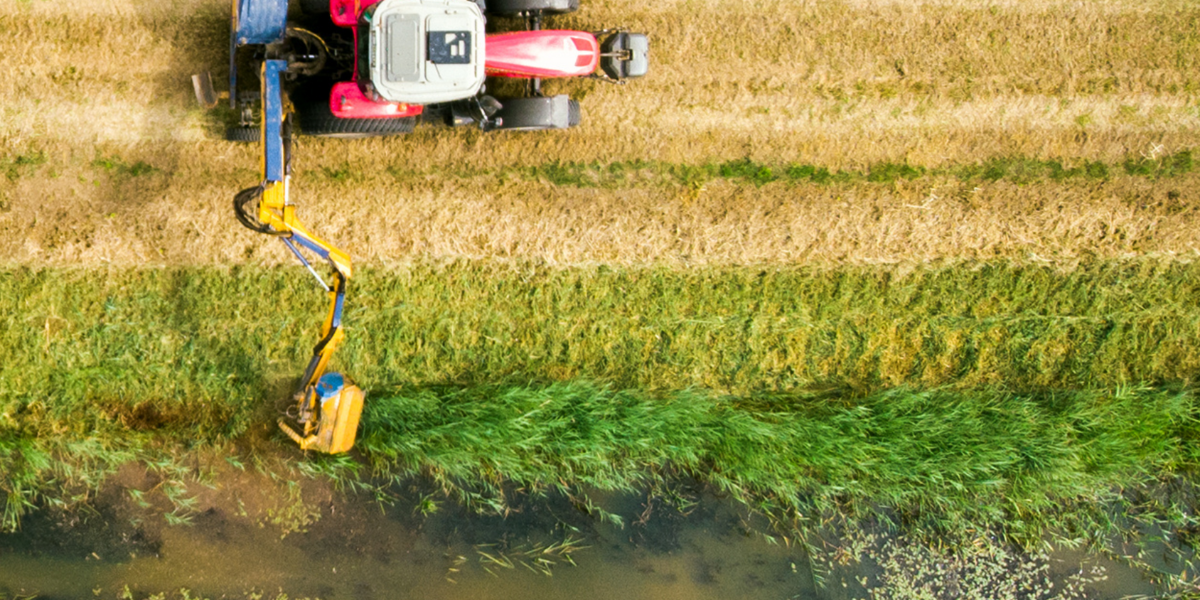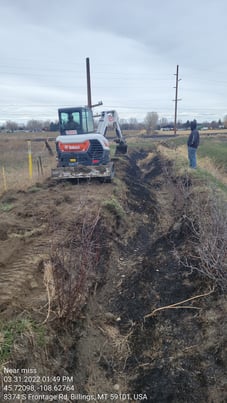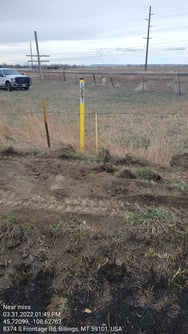
This article was published in the 2024 Excavation Safety Guide.
THE MAINTENANCE and creation of ditches, whether for drainage or irrigation are critical tasks in both road construction and agriculture. These activities, which always involve some form of excavation, raise significant concerns about the safety and legal implications associated with damage to underground utilities, especially pipelines transporting hazardous materials such as gasoline, diesel, or natural gas to your local community.
Understanding Ditch Categories
Ditches are categorized into two types: road and agricultural. Agricultural ditches require frequent maintenance due to the accumulated silt and vegetation, necessitating periodic removal to maintain the functionality.
Excavation and Legal Limitations
A key question typically arises regarding the removal of accumulated material in ditches. Does the process count as excavation, thereby necessitating a One Call notification for the identification of underground utilities that could be impacted by the removal of dirt and vegetation? State laws vary across the U.S. drastically. Some state laws say no, ditch cleaning or road grading is not considered excavation if you are not “changing the grade”. This is where the devil is in the details.
What about determining the original grade?
One challenge is determining the original bottom of a ditch, especially when using mechanical equipment. In cases where the ditch is not clearly marked or lined from the past, establishing the original grade becomes impossible to prove at times, and is a weak link for the excavator when it comes to liability. Some state laws offer exemptions for certain types of agriculture excavations, but the ambiguity remains, such as when cleaning irrigation ditches.
Incidents and Responsibilities
There have been incidents where ditch cleaning, conducted without locating underground utilities, resulted in utility damage. These situations lead to hardships for the individual doing the digging (without a locate) when it comes to paying for the repairs. The real conflict is often who bears the cost of repair and implementing preventative measures, leading to the question - did you have a locate or not?
Opinion: Arguing over what constitutes excavation in the context of ditches seems fruitless. The use of mechanical equipment near ditches should always be accompanied by a locate request to ensure safety. The approach is not only a form of preplanning but also a free service acting as an insurance policy for the safety of all involved.
In conclusion, while state laws and definitions vary, the emphasis should be on safety and precaution. A simple, proactive approach involving a locate request can prevent potential hazards and disputes, ensuring the safety of individuals and the integrity of the underground utilities and the services your community and neighbors count on.
Don't be that neighbor. Always get a locate before any earth-moving activity, especially ditch cleaning.

![ESM Sidebar Ad[87] ESM Sidebar Ad[87]](https://excavationsafetyalliance.com/hubfs/ESM%20Sidebar%20Ad%5B87%5D.gif)



Comments